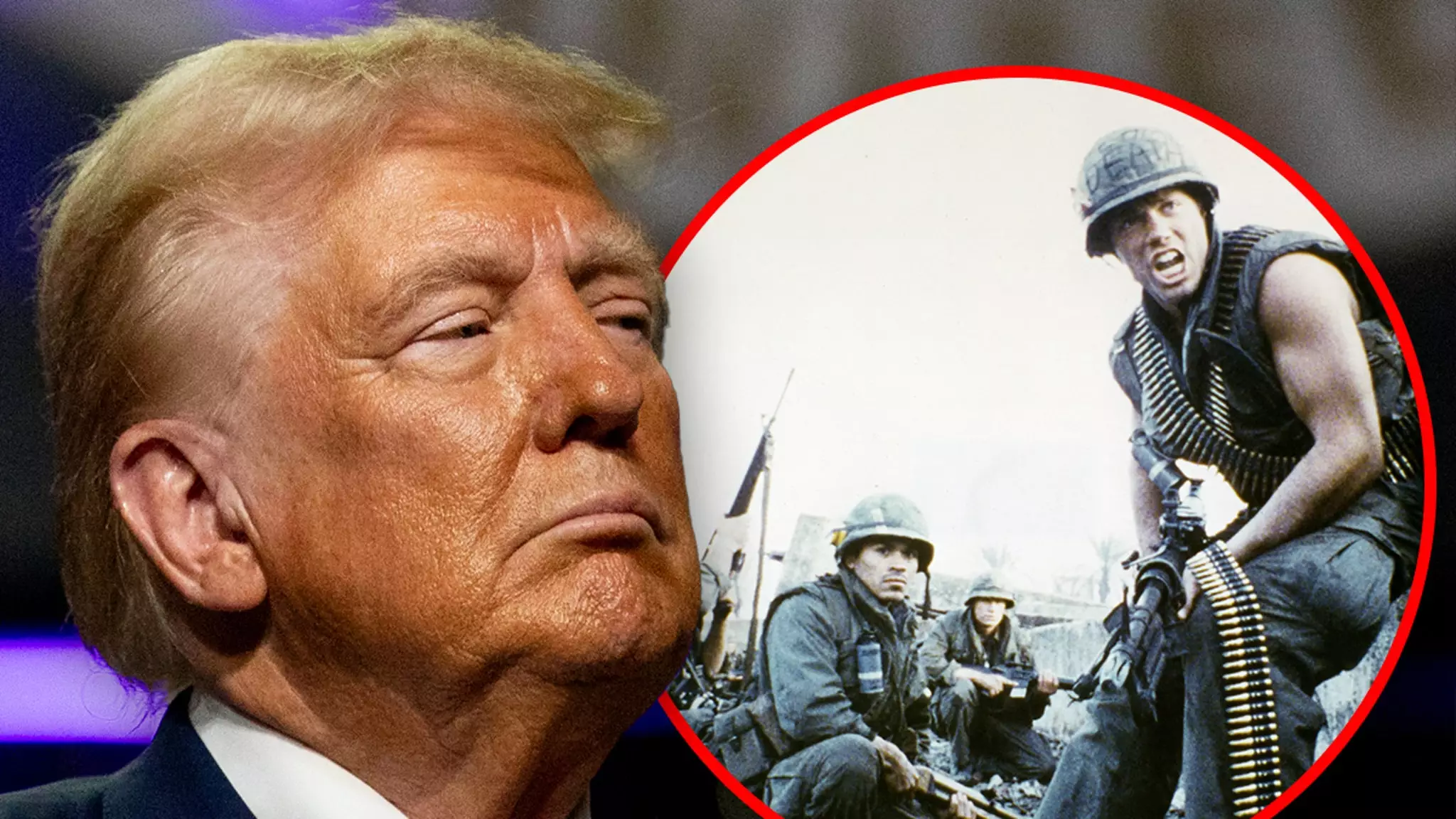At a recent rally in Coachella, California, former President Donald Trump seized the opportunity to articulate his vision for the U.S. military, emphasizing a return to a traditional, “Full Metal” ethos. This rhetoric is not merely a commentary on military policy, but a part of a broader cultural discourse that pits traditionalism against contemporary values. The event underscored Trump’s efforts to galvanize his base by playing a provocative video that juxtaposes his military ideals against those he claims would be represented under Kamala Harris’s potential leadership. By invoking scenes from Stanley Kubrick’s iconic film “Full Metal Jacket,” Trump aims to evoke a sense of nostalgia for a military that adheres strictly to traditional standards of masculinity.
One of the primary themes emerging from Trump’s rally is the labeling of modern military policies as “woke.” This terminology suggests a rejection of inclusivity and diversity within the armed forces, equating progressivism with weakness. In his video, Trump highlights clips of military personnel in drag and figures like Rachel Levine, drawing a stark contrast to his idealized vision of servicemen and women. The implication is clear: Trump perceives a militaristic environment that celebrates traditional values, while he equates any departure from these norms with a lack of professionalism and readiness. His use of language is part of a larger narrative that seeks to undermine the legitimacy of these progressive policies and illustrate a military that is, in Trump’s eyes, losing its edge.
Central to Trump’s narrative is a glorification of the rugged ideal of military life, typified by the character of Gunnery Sergeant Hartman in “Full Metal Jacket.” However, this portrayal raises important questions about the nature of military discipline and leadership. While Hartman’s brutal tactics may have toughened his cadets, the film ultimately critiques the very authoritarian values that Trump seems to endorse. His rallying call to restore the military to an ostensibly pure form suggests a yearning not only for tougher soldiers but for a military culture that may not tolerate the complexities of modern identities.
The military landscape has evolved significantly over the last decade, particularly with the repeal of “Don’t Ask, Don’t Tell” in 2010 and the introduction of various diversity initiatives under the Biden administration. These developments reflect a societal shift towards inclusivity and acknowledgment of various identities within the ranks. Trump’s rhetoric, therefore, can be seen as an attempt to resist this change, yearning for a time when military service was defined by a narrow set of norms. The contrast between Trump’s vision and current military values encapsulates an ideological battle at the heart of American society.
As the political landscape continues to shift, the potential for Trump’s influence on military policies remains a matter of speculation. Should he regain office, significant changes could be on the horizon, fundamentally altering the direction of the military. Will it revert to a vision steeped in traditional masculinity, or will the momentum towards diversity and representation continue to prevail? The outcomes are uncertain, but what is clear is that the discourse surrounding the military will remain a flashpoint in the culture wars, serving as a battleground for differing philosophies on identity, service, and what it means to defend the nation.

